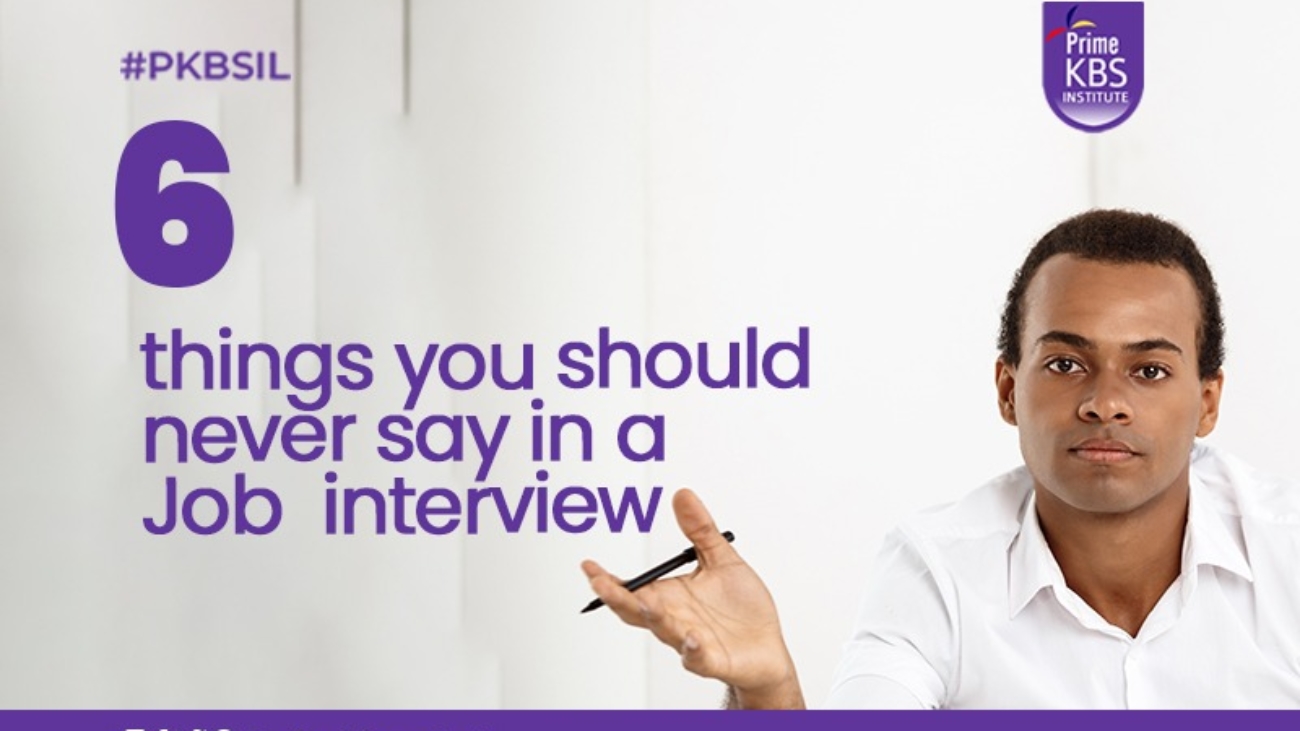In an interview, your main goal is to persuade the hiring manager that you are the best candidate for the position out of all the others. To successfully achieve that, there are certain things you should never say in a Job interview.
It’s just as vital to know what the hiring manager will consider a red flag as it is to prepare answers to interview questions.
Negativity does not go over well in job interviews, since employers like positive people, and divulging too much personal information in a job interview will hurt your chances of being hired.
What you say and how you say it during an interview is critical in assisting the interviewer in determining whether you are a great candidate and a suitable match for their company and culture. One thing you can do to prepare for an interview is to consider what you don’t want to say and what you want to make sure is covered. In this article, we’ll go through some of the things you should never say in a job interview.
Here are 6 things you should never say in a job interview:
Asking What the Company Does: The first thing to do while preparing for your interview is to do your research. You never want to go into an interview knowing nothing about the position or the firm; you want to show that you’re interested enough to conduct some research and consider how you’d fit in. To begin, conduct some online research and locate a current or former employee with whom you may speak before the big day if possible.
Speaking Negatively about your previous employer/Job: Answering questions relating to your prior company or career in a professional and pleasant manner, without mentioning anything negative demonstrates your capacity to remain professional and positive in any situation. Positive responses to the questions might help reassure the interviewer that you’ll fit in well with their business culture and that you won’t say anything negative about them in the future. When responding to inquiries regarding your prior workplace, attempt to concentrate on what the position you’re going for has to offer that your previous job didn’t.
Saying you can do whatever is available: The majority of hiring managers are searching for candidates that are extremely enthusiastic about the position they are applying for. So it’s a massive red signal if you say something like, “I don’t care what positions you have available—I’ll do anything!” Instead, narrow your search to a single role at each organization and be prepared to explain why it’s the right fit.
“it’s on my resume”: Even if the answer to the interviewer’s question is on your resume, you should always try to answer their questions on your terms and provide them with additional information. When you have your answer to a question on your resume, the interviewer is most likely just seeking further information. Try to respond to these questions with concrete examples that demonstrate your experience or skills, or by describing how your qualifications are applicable to the position.
Asking about benefits, vacation, and pay: During the interview, you should concentrate on demonstrating why you are the best candidate for the job and persuade the interviewer or company to provide you with a job offer. You should aim to avoid asking about perks, vacation time, or pay until the interviewer brings it up first. Rather, wait until they make you an offer before you start negotiating. Instead of asking about perks, vacation, or pay upfront, you might bring it up near the conclusion of the interview. This gently informs the interviewer that you still have questions about the perks the employment provides, but it does not put any pressure on them to respond right now.
Saying “I don’t know”: Even if you practice, practice, and practice, you may still be stumped by a question. However, answering “I don’t know” is rarely the best response. This could be an excellent chance for you to demonstrate your critical thinking and problem-solving abilities. You can tell the interviewer that you need a moment to think about your response or that you need more information to put together an accurate response.
Knowing what to say, as well as things you should never say in a job interview will help you get hired.
There are far too many possibilities to say something inappropriate. You may be tempted to express your worries about the position, the employer, or your candidacy, especially if you’re nervous from the stress of an interview or you have self-doubts.
Keep your responses focused on your abilities and credentials. This isn’t the time or place to talk about your troubles; instead, concentrate on capturing the employer’s attention.


